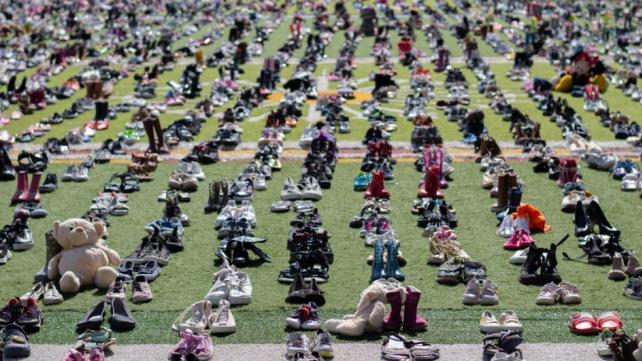
Genocide—the deliberate targeting of people based on their identity—is one of the gravest injustices of our time. For Muslim families, responding to such atrocities is not only a matter of humanitarian concern but also a profound spiritual duty. Our faith calls us to stand firmly against oppression, acting with integrity and compassion.
As Allah commands in the Quran:
“O you who believe! Stand out firmly for justice, as witnesses to Allah, even if it be against yourselves, your parents, or your kin.”
(Surah An-Nisa 4:135)
In a world shadowed by suffering, our homes must become places where moral courage and a commitment to justice are nurtured. With sincere intention (niyyah), purposeful action, and unwavering empathy, Muslim families can respond meaningfully to injustice.
When it comes to explaining genocide to children, it’s important to speak with honesty but also with care. We can say that genocide is when some people are treated very unfairly or hurt just because of who they are—their background, their religion, or their family. It’s a very serious wrong, and our faith teaches us to protect others, stand up for what is right, and show kindness to everyone.
The Prophet Muhammad (ﷺ) taught us through Abu Saeed al-Khudree (may Allah be pleased with him):
“Whosoever of you sees an evil, let him change it with his hand; and if he is not able to do so, then [let him change it] with his tongue; and if he is not able to do so, then with his heart — and that is the weakest of faith.” [Muslim]
Guided by this wisdom, below are age-appropriate, faith-rooted ways for families to take action against injustice:
1. Write Letters with Purpose
Letter-writing is a simple yet powerful form of advocacy. Families can draft messages to elected officials, newspapers, or international bodies to raise awareness and demand accountability.
Begin with a heartfelt du’a for the oppressed, then guide children in writing respectful, thoughtful letters rooted in Islamic values like haqq (truth). As the Prophet ﷺ said,
“The best form of jihad is to speak a word of truth to a tyrannical ruler.”
(Sunan Abi Dawud)
This practice empowers children to use their voices for justice.
2. Call Your Representatives: Advocacy as Worship
Contacting elected officials can be framed as a spiritual act when motivated by justice. Show children that taking civic action can also be an act of ibadah.
Practice phone calls together using simple scripts. Older children can take the lead, learning that advocacy is a moral responsibility—and that silence is not an option.
3. Attend Peaceful Protests and Vigils
Peaceful demonstrations are modern expressions of enjoining good and forbidding wrong.
Join family-friendly protests or vigils, making signs with Qur’anic verses like:
“Do not let the hatred of a people prevent you from being just...”
(Surah Al-Ma’idah 5:8)
Discuss the significance of standing up publicly, drawing parallels to how the Prophet ﷺ and his companions advocated for the oppressed.
4. Learn Together: Faith and Awareness
Understanding injustice is the first step toward addressing it. Study both Islamic and global histories of persecution—such as those faced by the Rohingya, Uyghurs, and Bosnians—alongside examples from early Islam.
Read books, watch documentaries, and create space for open discussion. Remind children that dignity and righteousness transcend race or nationality:
“The most honored of you in the sight of Allah is the most righteous of you.”
(Surah Al-Hujurat 49:13)
5. Give Charity and Fundraise Together
Supporting victims through sadaqah or zakat is both a moral and spiritual duty.
Encourage children to participate in fundraising—through bake sales, a “Justice Jar,” or by selecting a charity to support. Pair each act of giving with du’a, showing that both prayer and action go hand in hand.
6. Use Art and Storytelling as Advocacy
Art is a form of resistance and expression through poetry, calligraphy, and storytelling. Encourage children to create art or write messages for children in conflict zones, fostering empathy and global connection.
Creating posters with Qur’anic verses or sharing stories of resistance from world history helps children see that advocacy can take many forms.
7. Make Du’a with Intention and Trust in Allah
Alongside action, teach the spiritual power of du’a and tawakkul (trust in Allah). After prayers, dedicate time for personal supplications for victims of genocide.
“Do not think Allah is unaware of what the wrongdoers do. He only delays them...”
(Surah Ibrahim 14:42)
Help children understand that prayer is a powerful form of solidarity and resilience.
Why These Actions Matter
Raising children who care about the oppressed is part of our amanah (trust) as parents. The Prophet ﷺ said:
“Whoever among you sees something wrong, let him change it with his hand; if he cannot, then with his tongue; and if he cannot, then with his heart—and that is the weakest of faith.”
(Muslim)
Every action—whether writing, protesting, donating, or praying—is a way to uphold justice (adl), mercy (rahma), and truth.
In times of darkness, families who act with conviction and compassion become beacons of hope. Together, we can raise a generation that not only speaks for justice but embodies it—through their hearts, hands, and faith.
Author bio: Miriam Mohamed is a mother to seven children and a granny to two cats! She loves trying new things and learning cool facts. She has taught in an Islamic school setting, has experience assisting children with special needs, and enjoys volunteering and being a part of the community. Miriam lives in Chicago with her beautiful flowering cherry tree and big family.



Add new comment